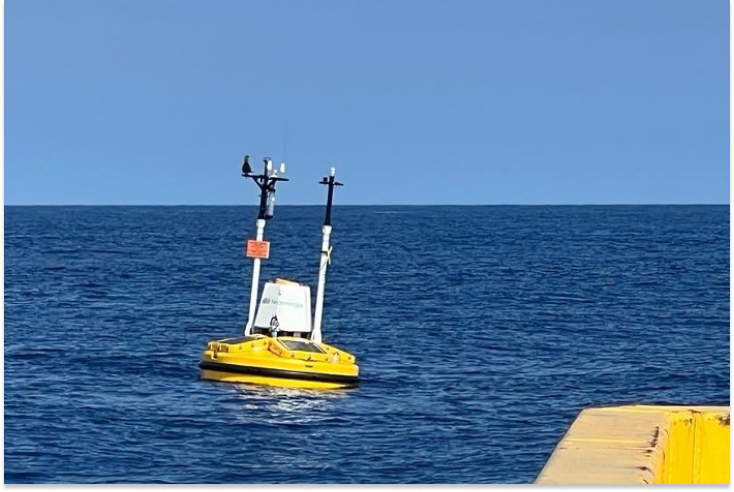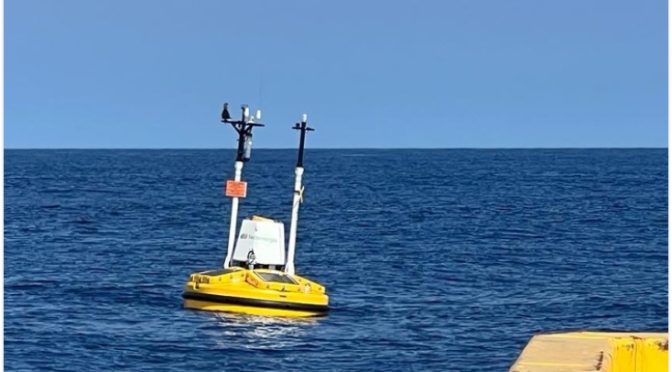Protagonist of the energy transition in Brazil, Neoenergia, took an important step to advance studies on the development of offshore wind energy generation. The company has just installed the floating LiDAR sensor (acronym in English for Light Detection and Ranging) to collect data on wind and sea characteristics in an area on the north coast of Rio de Janeiro. This is the first time that a company in Brazil uses an internationally certified system with maximum performance rating (level three), which allows greater precision and reliability of data.
The novelty was presented during the Brazilian Offshore Wind Summit 2024, which ends this Wednesday, in Rio de Janeiro. The LiDAR is protected inside a buoy almost three meters in diameter. Among other functions, the sensor is capable of remotely measuring, using laser rays, the speed and direction of the wind, based on the movement of air particles, in ranges ranging from 10 to 300 meters high.
It is also possible to obtain information related to marine currents, aspects of waves, sea water temperature, pressure and humidity, among other references. The set of devices is almost 7.5 meters high, from the base of the keel to the tip of the antenna, and also has solar panel modules, among other resources, to function. With LiDAR, Neoenergia will have access, via satellite, to specific reports on wind and sea conditions in the region, with data transmitted in real time over the Internet.
It took 10 hours to transport the floating sensor from the Porto do Açu dock, in the municipality of São João da Barra (RJ), to the installation site on the high seas, approximately 40 kilometers from the coast. The operation was carried out by Fugro BR, a world reference in measurement services for wind resources and ocean parameters.
Neoenergia also had the logistical support of Prumo Logística, a holding company controlled by EIG and responsible for the development of Porto do Açu, with which the company signed a memorandum of understanding (MoU) in 2022, for research related to wind energy generation projects. Marine. in the region.
Marcelo Lopes, director of Hydraulics and Offshore at Neoenergia, highlights that the country needs to develop intelligent and sustainable energy solutions to stimulate a new industrialization model from clean sources. “With state-of-the-art floating equipment we are moving towards a new reality for the renewable energy sector. We believe that the transformation process of the Brazilian productive chain requires the association of sustainability with innovation,” he stated.
Regarding the development of offshore wind generation in the country, the executive highlights that “in the regulation of future area auctions it is necessary to consider selective criteria so as not to overload the source at the beginning of its development.” According to Marcelo Lopes, this is the way to promote the industry in the future and attract the supply chain that will result in competitiveness at the source, with gains in scale and technological development.

Neoenergia has been contributing to the promotion of the clean energy sector in the country with alliances aimed at promoting new technologies to offer innovative solutions. Currently, the company has 4 GW of installed generation capacity, of which 88% is renewable energy.
Laura Porto, executive director of Renewables at Neoenergia, highlights that advancing in the development of the marine energy market in the country requires a legal framework. “It is essential that Brazil prepares and positions itself as it did 20 years ago with the implementation of onshore wind generation. This is an opportunity, after all, this promising future is already being built today,” she says. The executive also believes that specific legislation will be important to provide legal and regulatory certainty, in addition to guaranteeing that investors have a more assertive allocation of resources.


